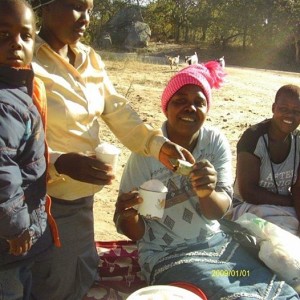How Micro-Finance Help to Stimulate Communities at Large

Mrs. Annia of Mutare, Zimbabwe used her SKImfi microloan to begin, and expand, a vegetable business.
“Any time I’ve been given something – just given something – I’ve never treated it very dearly or very importantly,” SKIC founder, Shyam, says. “But when I have worked for something and reaped the reward, I feel satisfied, accomplished, and inspired.”
A similar pattern follows with SKIC micro-finance beneficiaries. Rather than being the recipients of monetary donations, SKIC participants work to pay back what they are loaned. “This brings them a sense of personal satisfaction, and they treat the whole process with more responsibility,” Shyam contends.
Further, micro-finance is sensitive to the pride of the beneficiaries – Zimbabweans especially are known to honor entrepreneurialism and self-initiative. Micro-finance is a system that values these qualities, favoring those who are responsible, have a strong work ethic, and a desire to effect their communities at large.
“When you’re doing micro-finance at such a local level, it’s not just about these women creating their own wealth and creating their own businesses. What about the spillover effects? They start paying off their kids school fees with some of the money they make. These women may hire some of their friends or sisters to work for their business. They are also buying from suppliers, who then in a sense become part of our program,” Shyam notes. “The spillover effect is huge. The confidence, entrepreneurial spirit, and self-responsibility that our beneficiaries exhibit – not to mention the personal & familial wealth they are generating – ends up affecting their children, their children’s schools, their friends…it stimulates the whole community. As SKIC continues to grow, we can stimulate more and more communities.”

